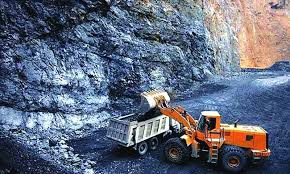For years, speculation and rumors have swirled around the role of the Pakistani military in Khyber Pakhtunkhwa’s (KP) mining sector. Some voices claim the military is trying to dominate the province’s mineral wealth. But do these claims hold any ground?
Let’s look at the facts.
According to official data, more than 3,900 mining licenses have been issued across Khyber Pakhtunkhwa. Out of all these, only one license—just one—was granted to a military-affiliated organization: the Frontier Works Organization (FWO). This license was issued in 2015 for mining in Boya, a region in North Waziristan.
At the time, no individual, investor, or private company was willing to invest in that conflict-affected area. The FWO stepped in when others wouldn’t. Interestingly, when FWO recently considered pulling out of the project, local residents reportedly pleaded for it to continue operations due to the economic benefits it brought to the area.
Outside of Boya, no mining leases or licenses have been issued to the military or any military-run organization in KP.
Despite this reality, misleading narratives persist. Some falsely claim the military is taking over KP’s minerals. These narratives are not supported by data or facts and seem to stem from disinformation campaigns by anti-state elements aiming to sow distrust between the public and state institutions.
Currently, over 500 new mining applications are under review by the KP Chief Minister’s office. Not a single one has been submitted by the military or its subsidiaries. Still, the propaganda continues.
During a high-level meeting, KP Chief Minister Ali Amin Gandapur addressed these concerns directly, stating:
“I swear I have never discussed the Mines and Minerals Bill with the Corps Commander. It’s unfortunate that this bill became a casualty of internal PTI politics, even though it was designed to benefit the people of KP the most.”
He also acknowledged the positive role of the military in maintaining law and order in KP, particularly in the fight against militants.
It’s worth mentioning that mining in KP’s mountainous and remote areas is a complex, expensive, and highly technical process. It requires specialized equipment, experienced labor, and logistical support. The KP government has previously expressed a desire to involve organizations like FWO and NLC in mining projects due to their technical capacity. However, no formal interest or proposals have come from these organizations.
Today, the military is heavily engaged in a decisive counter-terrorism campaign across the region. Accusing it of resource exploitation at such a time is not just misleading—it actively undermines its contributions to peace and security.
The public has a legitimate stake in natural resources, and policies should reflect that. But decision-making must be based on facts, not rumors, and cooperation—not confrontation—with state institutions.
In a time of rising disinformation, it’s more important than ever to separate reality from propaganda.

